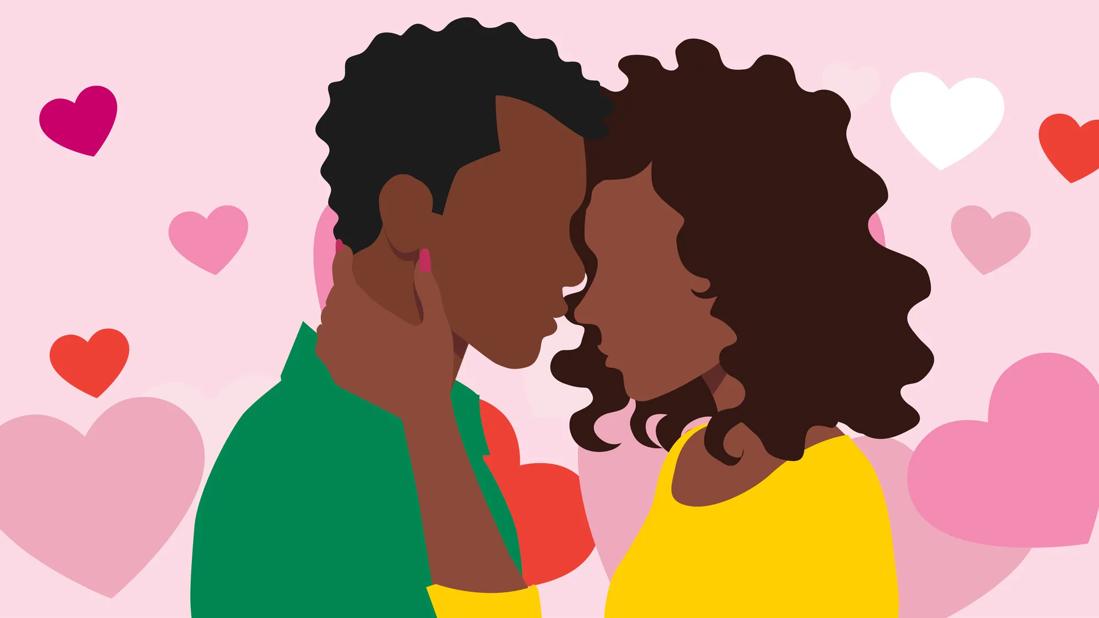Being hooked on love can cause unhealthy relationship patterns and obsessive thoughts

Image content: This image is available to view online.
View image online (https://assets.clevelandclinic.org/transform/f2f01375-ba0b-4772-875e-b273bfce243a/love-addiction-1324971501)
An embracing couple, forhead to forhead, with hearts all around
A popular song from the 1980s has a refrain that goes, “Might as well face it, you’re addicted to love.” The rest of the lyrics describe a frenzied, passionate and borderline obsessive type of desire — all hallmarks of a real-life love addiction.
Advertisement
Cleveland Clinic is a non-profit academic medical center. Advertising on our site helps support our mission. We do not endorse non-Cleveland Clinic products or services. Policy
While “love addiction” isn’t an official diagnosis, psychologists say the concept can help explain and identify certain relationship patterns and emotional struggles. Psychologist Gina Gerardo, PhD, shares insight.
“Love addiction” is often used to describe the way an obsession with romantic relationships can become unhealthy.
Love addiction isn’t a diagnosable medical condition — it’s more of an abstract concept. But it may be a type of behavioral addiction, an activity or habit that becomes all-consuming and negatively affects your health and overall quality of life.
Where healthy relationships tend to feel balanced and supportive, love addiction can often feel distressing or disruptive. A 2023 study describes it as an overwhelming and even compulsive longing for love, attention and affection from others.
“It can mean constantly seeking out romantic partners or developing feelings toward a specific person in an unhealthy or extreme way,” Dr. Gerardo explains. “Your emotional stability or sense of self-worth often depends heavily on another person — or on whether or not you’re in a relationship at all.”
You might also hear a love addiction called:
Advertisement
Certain patterns can signal that your views on love have crossed into unhealthy territory. Signs include:
Love addiction can also really take a toll on your mental health and self-esteem. That same 2023 study found that unhealthy attachments between adults can lead to intense negative emotions and feelings of low self-worth.
“If it’s harming your other relationships with friends and family or if it’s keeping you from other responsibilities — like work, taking care of children, keeping up with bills or medical appointments — that’s a sign that there could be a problem,” Dr. Gerardo says.
There’s no single cause of love addiction. Psychologists believe this unhealthy view of relationships is driven by a mix of emotional patterns, relationship experiences and brain responses. Those factors may include:
Advertisement
Symptoms of love addiction can also overlap with other mental health disorders and even magnify symptoms of conditions like:
Even without a formal diagnosis, you can still take steps to address the behaviors and emotional patterns linked to love addiction.
“If you find that love is becoming particularly distressing or disruptive to your life, it’s worth addressing the issue and potentially seeking treatment,” Dr. Gerardo says.
Rather than trying to ditch love completely, you can work to find a healthy balance. Here are some of the coping strategies she recommends.
Advertisement
The song “Addicted to Love” also includes the lyrics, “A one-track mind, you can’t be saved” … but it was wrong about that. Love addiction can be managed — and overcome — with intentionality, introspection and professional guidance.
“If you find yourself completely engrossed with someone, to the point that it’s affecting how you eat, sleep or react to stressful situations, then it’s time to assess your relationship with love,” Dr. Gerardo states. “There are ways to turn it into a more positive force in your life.”
Advertisement

Sign up for our Health Essentials emails for expert guidance on nutrition, fitness, sleep, skin care and more.
Learn more about our editorial process.
Advertisement
Communicating clear limits helps protect your time, energy and emotional well-being
When someone guilt trips you, they’re using emotionally manipulative behavior to try to get you to act a certain way
This behavior is usually a sign that the other person doesn’t know how to handle conflict or is prone to being passive-aggressive
It can be harder to let go when you’ve invested time, energy and emotions — but it might be the healthier choice long term
Attachment theory suggests that your earliest relationships shape connections throughout your life
Love languages are defined by the way you prefer to give and receive affection
There are many different ways to love someone and yourself
If you find yourself obsessing over rejection or a one-sided relationship, you’re likely stuck in limerence
Although it could be used as a moisturizer, this new trend is not recommended
Communicating clear limits helps protect your time, energy and emotional well-being
High cholesterol can be genetic, but testing and treatment can lower your heart disease risk